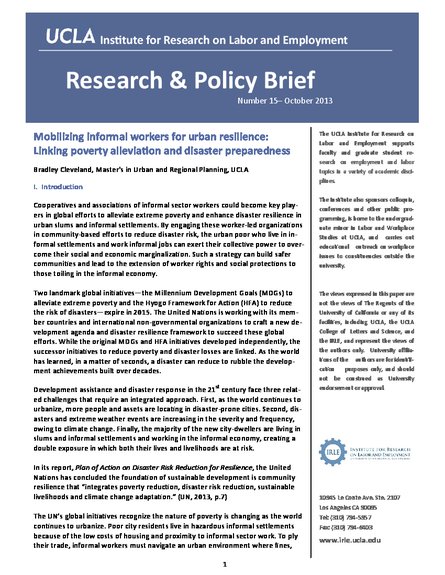
This policy brief builds on the UN’s call for community‐based disaster risk reduction, arguing the urban poor who live in informal settlements and work informal jobs can become key actors in the development of disaster resilient communities. This strategy relies upon the agency of the slum dwellers and informal workers themselves to overcome the political marginalization that contributes to their vulnerability to disasters.
By engaging membership‐based organizations of informal workers in efforts to reduce disaster risk, local government can scale up efforts to enhance community resilience. More importantly, workers in the informal economy become agents of change, not recipients of development aid, transforming their precarious jobs into what the International Labour Organization defines as “decent work,” that provides a fair income, job security and social protection, and promotes social dialogue. (ILO, 2007)
Resource collections
- UN Habitat - Urban Response Collection
- Urban Response - Urban Crisis Preparedness and Risk Reduction
- Urban Response Collection - Community Engagement and Social Cohesion
- Urban Response Collection - Economic Recovery
- Urban Response Collection - Environment and Climate Change
- Urban Response Collection - Housing, Land and Property
- Urban Response Collection - Urban Crisis Response, Recovery and Reconstruction
- Urban Response Collection - Urban Resilience